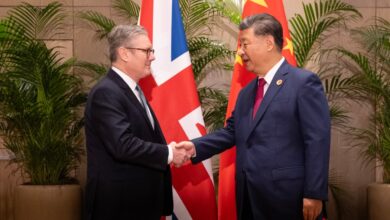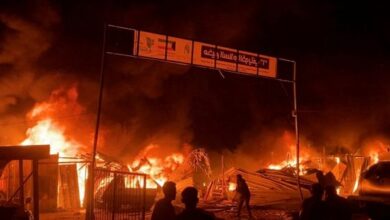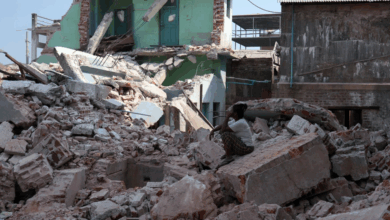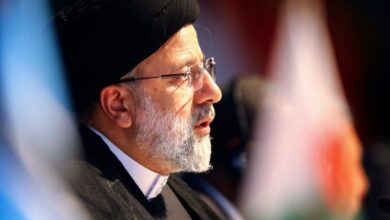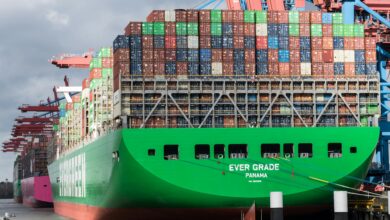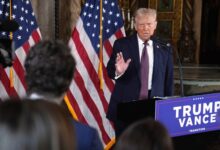Five Takeaways from Donald Trump’s Game-Changing Middle East Trip
On a high-stakes Middle East tour, President Trump secured massive investments, eased Syria sanctions, and signaled a sharp shift away from U.S. interventionism.

Washington, DC. (WE) — In one of the most consequential diplomatic missions of his second presidency, Donald Trump concluded a whirlwind three-day tour of the Middle East, touching down in Saudi Arabia, Qatar, and the United Arab Emirates. The trip marks a bold return to foreign policy engagement for a president who has long touted an “America First” approach. Yet, this journey revealed a deeper strategic pivot, underscored by massive investment deals, a shift away from traditional allies, and an assertive new doctrine in the region.
For Trump, the trip was both a business and diplomatic success story. He secured pledges for up to $2 trillion in investments, reignited geopolitical fault lines, and set a tone that could redefine Washington’s relationship with the Middle East. The word “historic” was frequently used by US officials, and with good reason—his rhetoric and actions signaled a marked departure from his predecessors, particularly in how the United States intends to engage with the region’s many challenges.
Here are five key takeaways from the trip:
Intervention Rejected
One of the most striking moments came during Trump’s address at an investment summit in Riyadh, where he made clear that the era of US-led nation-building is over. Calling out the failures of previous administrations, particularly the neoconservatives who oversaw the wars in Iraq and Afghanistan, Trump drew a sharp contrast between American interventionism and the self-driven development of Gulf countries.
“This great transformation has not come from Western intervention or flying people in beautiful planes, giving you lectures on how to live and how to govern your own affairs,” he told an audience that included Gulf royals and regional business magnates. He praised leaders like Saudi Crown Prince Mohammed bin Salman, UAE President Sheikh Mohamed bin Zayed Al Nahyan, and Qatari Emir Sheikh Tamim bin Hamad Al Thani for their investments in infrastructure, technology, and education.
In his words, “The gleaming marbles of Riyadh and Abu Dhabi were not created by the so-called nation-builders, neo-cons or liberal nonprofits… In the end, the so-called nation-builders wrecked far more nations than they built.”
This realist posture aligns with Trump’s long-standing brand of populism, which prioritizes domestic affairs over costly overseas interventions. But it also serves as a political statement—a rejection of the very Republicans who once held sway in foreign policy, particularly during the George W. Bush years. For Trump, the speech was more than symbolic; it was a formal pronouncement that under his administration, the United States will no longer pursue failed experiments in democracy promotion abroad.
Gaza Neglected
Perhaps the most eyebrow-raising element of the trip was Trump’s decision to bypass Israel, a move that would have been unthinkable for any other US president visiting the region. The omission speaks volumes about the state of US-Israel relations and the growing rift between Washington and Prime Minister Benjamin Netanyahu.
Trump’s administration has recently taken several steps that could be interpreted as downgrading the “special relationship.” It has maintained dialogue with Iran, brokered a ceasefire with the Houthis, and even opened separate negotiations to secure the release of Edan Alexander, an Israeli-American soldier held by Hamas.
There was also no mention during the trip of advancing the Abraham Accords, the normalization framework that once aimed to bring Saudi Arabia and Israel closer. In fact, Trump appeared indifferent to any pressure on Riyadh to formalize diplomatic relations with Tel Aviv.
Khaled Elgindy, a Georgetown University scholar, told Al Jazeera that Trump’s actions reflect a strategic recalibration. “It does throw a wrench in the machinery because it is a president who is showing openly daylight with Israeli decision-making,” Elgindy said. “And not just in rhetoric, but acting on it—leaving Israel out of the process.”
Despite hopes from Palestinian rights advocates, Trump offered no concrete steps to end the war on Gaza. Israel continued its bombardment of the enclave during his visit, and humanitarian aid remained blocked for nearly two million residents. While United Nations experts warned of an unfolding genocide, Trump avoided any decisive condemnation.
Instead, he floated a provocative proposal: “I have concepts for Gaza that I think are very good. Make it a freedom zone. Let the United States get involved, and make it just a freedom zone.” Legal scholars and human rights groups were quick to criticize the idea, saying it borders on ethnic cleansing.
Syria Reengagement
In a surprise announcement from Riyadh, Trump revealed that he would lift major US sanctions on Syria, citing the nation’s desire for a fresh start after more than a decade of civil war. He framed the move as a humanitarian gesture made at the request of Mohammed bin Salman and President Recep Tayyip Erdoğan of Türkiye.
Trump also met with interim Syrian President Ahmad al-Sharaa, a controversial figure known for his past association with Jabhat al-Nusra, an al-Qaeda offshoot. Nevertheless, Trump described al-Sharaa as a “young, attractive guy” and said he deserved a chance.
According to the White House, the lifting of sanctions comes with conditions, including normalizing relations with Israel and deporting individuals accused of terrorism. While the move has angered Israeli officials, who view al-Sharaa as a terrorist, regional analysts argue it could be a game-changer for Syria’s economic recovery.
“Lifting sanctions on Syria represents a fundamental turning point,” said Ibrahim Nafi Qushji, an economist speaking to Al Jazeera. “The Syrian economy will transition from interacting with developing economies to integrating with more developed ones, potentially significantly reshaping trade and investment relations.”
Read More:
- Israel ‘normalisation’ takes backseat as Trump announces Saudi deals
- Trump Kicks Off Three-Country Mideast Visit, Skipping Israel
- Russia, Ukraine agree in Istanbul to exchange 1,000 POWs each
How About Iran?
Trump’s tone toward Iran was notably softer than in previous years. Speaking in Riyadh, he extended what he called an “olive branch” to Tehran, expressing a desire for a new nuclear deal. “We really want them to be a successful country… but they cannot have a nuclear weapon. This is an offer that will not last forever,” he warned.
Trump refrained from threatening military action, a notable shift from his comments in March, when he told NBC News that bombing Iran was “on the table” if talks failed. Instead, he emphasized diplomacy backed by economic leverage. If Iran refuses to halt uranium enrichment, Trump promised to resume “maximum pressure” and cut off Iranian oil exports completely.
Iranian officials maintain they are not seeking nuclear weapons and would accept international oversight. However, hawkish voices in the US and Israel continue to demand a full dismantling of Iran’s nuclear infrastructure.
Talks between the US and Iran have reportedly occurred multiple times this year, but no formal proposal has been presented. Trump’s envoy to the negotiations, Steve Witkoff, said last month that uranium enrichment must “stop and eliminate,” though he later suggested a compromise involving only civilian-level enrichment.
Support for negotiations is growing among Gulf states. Improved ties between Iran and Saudi Arabia, brokered in part by China, have given regional players a new reason to support de-escalation.
Investments
Perhaps the most Trumpian aspect of the trip was the laser focus on business. From the moment he arrived in the Gulf, Trump was in full dealmaking mode, announcing a series of mega-investments that included arms purchases, infrastructure projects, and joint ventures.
According to a White House press release, the total value of investment commitments reached $2 trillion, with contributions from Saudi Arabia’s Public Investment Fund (PIF), Qatar Investment Authority, and Mubadala in the UAE.
Trump’s administration heralded the figure as a major political and economic victory. “While it took President Joe Biden nearly four years to secure $1 trillion in investments, President Trump achieved this in his first month,” the White House boasted. “Additional investment commitments are continuing to roll in.”
Among the deals signed were:
- A $400 billion military technology agreement with Saudi Arabia.
- A $250 billion energy infrastructure program co-financed by Qatar.
- A $300 billion real estate and logistics pact involving UAE sovereign funds and Blackstone.
The deals are intended to fuel American jobs and strengthen trade partnerships, key elements of Trump’s economic agenda. Analysts suggest these investment announcements are not just economic gestures but part of a broader soft-power push aimed at cementing Trump’s influence both at home and abroad.
As Trump returned to Washington, DC, he declared the trip a “massive win” for American workers, US diplomacy, and global peace. Whether the promises materialize remains to be seen. But for now, the former businessman-turned-president appears to have once again played the role he relishes most: dealmaker-in-chief.

